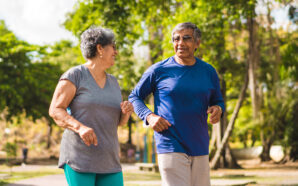Sydney, Australia – Apart from a passport, a health certificate will be essential to travel in the post-pandemic world, according to the co-founder of Lonely Planet travel guides.
In an interview with EFE, Tony Wheeler said it will be “very difficult” to resume travel as before the advent of COVID-19.
The 73-year-old Briton has influenced initiatives such as CommonPass, a kind of digital certificate with COVID-19 test results developed by The Commons Project Foundation and the World Economic Forum.
Wheeler, who has lived in Melbourne, Australia, which has undergone one of the longest confinements in the world, said via videocall that he feels “terrible” to see the universe has been reduced to a radius of a few kilometers around one’s residence due to the restrictions imposed.
The author of “In defense of travel” believes people will move “differently” during the new normal and that it can be a pause for an indefinite period for mass travel and even for backpacking tourism that Lonely Planet encourages.
After months in which international borders have remained tightly closed, how do you think the reopening and restart of trips will take place?
I think the crucial issue is that countries are waiting for the vaccine, but I don’t think travel is going the way it was before the pandemic. What results from this will be very different from what happened before the pandemic.
I was reading about the CommonPass, a kind of passport, which will say that you underwent a test (for COVID-19) here and there (…) if you have undergone two tests you will probably become a more confident person. I think we will use health books again, people will say ‘show me your passport and your health record.’”
How is COVID-19 going to impact our way of traveling?
There has been a lot of talk about how it will impact especially young and budget travelers.
One of the things that had happened is that private jet charters increased because people had a lot of money. The last thing we want is for people to go back to using more fuel and traveling in a way that is more damaging to the environment. Changes will undoubtedly occur, but we are still trying to determine what they will be.
But if we want to see the bright side of this, I think people will realize more what a privilege it was to travel when you could go anywhere.
So, will you rethink mass travel and local travel?
I don’t know if it will change forever, but I think it may change some of the things that we considered wrong about travel before the pandemic, such as excessive tourism or the impact of large numbers of flights on the environment.
I think it will be difficult to go back exactly to how everything was before. I don’t think we can easily go to some places and I also think we are going to have more regulations.
I, for example, spend my time between London and Melbourne, where my two sons and a granddaughter live. They are the reason I am in Melbourne, otherwise, I would spend more time in London. Perhaps from now on we will have to choose. We will not be able to come and go from one place to another as often.
What will happen to cruise ships, where many outbreaks of the virus were detected?
I think (operators) will be more careful, they will have more medical check-ups, more medical services onboard and they will not crowd people so much.
The wide introduction of teleworking has been a consequence of the pandemic. Will this change business travel?
We have discovered how much we can work from home; in certain jobs you can do it that way and in others you cannot. Some may continue telecommuting, but in other sectors, you really have to go there.
People who have traveled using Lonely Planet look for those little places that are recommended in the guide. Do you think that COVID-19 has put an end to the dream of Tony Wheeler and Lonely Planet?
I think in the short term it has. No one is going anywhere and when compared to what the guide says, the question remains whether that restaurant will remain open when the pandemic ends.
Covid-19 has forced the closure of many businesses and others will do so later. I think it is also going to be very tough on the travel guide business.
Do you think travel difficulty can risk people discovering cultures different to theirs?
One of the best ways to overcome prejudices is to travel, for people to go everywhere. I would be very sorry if we lose this element of travel.






